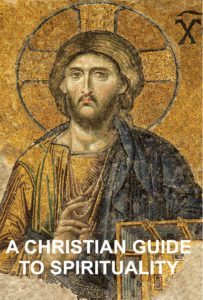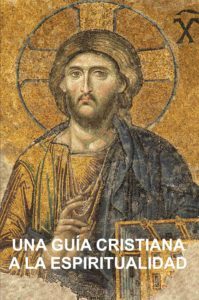Stephen W. Hiemstra's Blog, page 107
August 17, 2021
Edgerton: Write in Your Own Voice
 Les Edgerton. 2003. Finding Your Voice: How to Put Personality in Your Writing. Cincinnati: Writer’s Digest Books.
Les Edgerton. 2003. Finding Your Voice: How to Put Personality in Your Writing. Cincinnati: Writer’s Digest Books.
Review by Stephen W. Hiemstra
Let me see. If you did not know the subject of a book called—Finding Your Voice—what possibilities come to mind? Perhaps, a doctor’s guide to throat surgery recovery? Or, maybe, lost in the opera house, confessions of a prima donna? Or, better, a citizen’s guide to responsive government…? Clearly, a bit of context is helpful.
Confession time. Although I am a writer myself, I read Les Edgerton’s Finding Your Voice: How to Put Personality in Your Writing, in part, to learn about writing and, in part, to see what he would say about personality. It is more than a bit ironic that a fiction writer would write about developing an authentic style (voice) in writing. Much like actors have trouble figuring out who they are—which mask is the real me?—fiction writers must live into the characters they create if readers are going to take them seriously. It is therefore not surprising that Edgerton finds tension between the authentic style of the writer and the requirements of the story (223). A chameleon writer might alternatively be considered extremely versatile or simply inauthentic—depending on the amount of experience writing that we are talking about.
Edgerton does not so much promote a particular method as assist the reader in discovering their authentic voice. This task could be daunting in an age of relativistic morality where the idea of personality—a surface attribute—has been substituted for the older notion of innate character . In a sense, Edgerton deconstructs the wantabe writer like a cook peels an onion—underneath do we find a core personality or just another mask? Strip away da rules of your English teacher (10); forget about the Critic Nag Dude and beige voice (11); abandon old writing books (15); take reviews (15); go easy on the synonyms (18). Most interesting is his notion that we must also abandon the voices in our head, so to speak, of favorite writers, previous editors, and cultural stereotypes. This writer’s exorcism goes on and on (48). Still, we are encouraged to find a voice that at least conforms to the expectations of the genre that we are writing for.
It is interesting to watch the voice evolve in Edgerton’s own writing. Early in the book, he assumes an edgy voice—the ex-con, insecurely trying to relate to the reader. By chapter 6 he assumes the more confident voice of a writing instructor. Later in the book the insecure voice shows up again in the form of name-dropping of other writers and books that might be interesting. Personally, I preferred the self-confident writing instructor who is not afraid to give me the advice that I need.
What advice did I seek? Edgerton writes:
Make yourself your intended reader. By writing to you as your reader, you get closer than at any other time to getting your real voice on the page. You write naturally (78).
Yes. Thanks. That will do fine.
FootnotesI am borrowing a bit from David F. Wells. 1998. Losing Our Virtue: Why the Church Must Recover Its Moral Vision. Grand Rapids: Eerdmans.
Edgerton: Write in Your Own VoiceAlso see:Books, Films, and MinistryOther ways to engage online:Author site: http://www.StephenWHiemstra.netPublisher site: http://www.T2Pneuma.com Newsletter: https://bit.ly/Construct_2021
The post Edgerton: Write in Your Own Voice appeared first on T2Pneuma.net.
August 16, 2021
No Lying: Monday Monologues (podcast) August 16, 2021

By Stephen W. Hiemstra
This morning I will share a prayer and reflect on the Ninth Commandment, Do not Lie. After listening, please click here to take a brief listener survey (10 questions).
To listen, click on this link.
Hear the words; Walk the steps; Experience the joy!
No Lying: Monday Monologues (podcast) August 16, 2021
Also see:
Monday Monologue On March 26, 2018
Other ways to engage online:
Author site: http://www.StephenWHiemstra.net,
Publisher site: http://www.T2Pneuma.com.
Newsletter: https://bit.ly/Construct_2021
The post No Lying: Monday Monologues (podcast) August 16, 2021 appeared first on T2Pneuma.net.
August 15, 2021
Prayer Day 39
By Stephen W. Hiemstra
Almighty God, gracious savior, spirit of truth.
We praise you for being the way, the truth, and the life (John 14:6).
Grant us a discerning spirit to know the truth and a gracious spirit for sharing it.
To you and you alone be the glory. In Jesus’ name, Amen.
Prayer Day 39
Also see:
Believer’s Prayer
Other ways to engage online:
Author site: http://www.StephenWHiemstra.net
Purchase Book: http://www.T2Pneuma.com
Newsletter: https://bit.ly/Construct_2021
The post Prayer Day 39 appeared first on T2Pneuma.net.
Oración Dia 39
Por Stephen W. Hiemstra
Padre Todopoderoso, Salvador Misericordioso, Espíritu de Verdad,
Te alabamos por ser el camino, la verdad, y la vida (Jn. 14:6).
Concédenos un espíritu de discernimiento para conocer la verdad y un espíritu misericordioso para compartirla.
A ti y sólo ti sea la gloria.
En el nombre de Jesús oramos. Amén.
Oración Dia 39
Ver también:
Prefacio de La Guía Cristiana a la Espiritualidad
Otras formas de participar en línea:
Sitio del autor: http://www.StephenWHiemstra.net
Comprar Libro: http://www.T2Pneuma.com
Boletín informativo: https://bit.ly/Construct_2021
The post Oración Dia 39 appeared first on T2Pneuma.net.
Gebetstag 39

Vor Stephen W. Hiemstra
Allmächtiger Gott, gnädiger Retter, Geist der Wahrheit.
Wir loben dich dafür, dass du der Weg, die Wahrheit und das Leben bist (John 14:6).
Gewähre uns einen scharfsichtigen Geist, um die Wahrheit zu erkennen, und einen gnädigen Geist, sie zu teilen.
Dir und dir allein sei die Ehre. In Jesu Namen, Amen.
Gebetstag 39
Siehe auch:
Einleitung auf Ein Christlicher Leitfaden zur Spiritualität
Andere Möglichkeiten, sich online zu engagieren:
Autoren Seite: http://www.StephenWHiemstra.net
Herausgeber Seite: http://www.T2Pneuma.com
Mitteilungsblatt: https://bit.ly/Construct_2021
The post Gebetstag 39 appeared first on T2Pneuma.net.
August 13, 2021
Do Not Lie (Ninth Commandment)

“And you shall not bear false witness against your neighbor.” (Exod 20:16)
By Stephen W. Hiemstra
The opposite of a lie is the truth.
We worship the God of truth. From the burning bush, God tells Moses that his name is: “I AM WHO I AM.” (Exod 3:14) Moses believed in God; Pharaoh refused to. When God presented the truth of his own existence, the nation of Israel was born. It is, accordingly, not surprising that the God of truth commands his people not to lie!
Bearing false witness is, however, more than an un-truth; it is a deliberate deception with a specific objective. The exposition in Exodus 23:1–3 outline three specific issues: spreading a false report, perverting justice in court, and giving biased testimony. Spreading a false report could be simple gossip or it could be committing libel. Perverting justice can, of course, be done in many ways. Being biased out can be motivated by poverty or various affinities (family ties, race, language, social class, national origin, creed, or even locality).
These prejudices and injustices are so common that we are more often surprised by integrity than by bias. The recent debate over the death penalty, for example, hangs less on a dispute over the penalty than on the disbelief that justice will occur. Is it any wonder that Pilate, a corrupt official himself, would ask Jesus: “What is truth?” (John 18:38)
The story of the woman caught in adultery is probably the most celebrated capital judgment case in scripture. The woman’s guilt is not in question; the only question was the penalty. The Pharisees asked Jesus: “Now in the Law Moses commanded us to stone such women. So what do you say?” (John 8:5)
Notice that under Jewish law both parties in adultery face the same penalty of death (Lev 20:10). Because the Pharisee covered up the man’s identity, they broke the Ninth Commandment in presenting this case. In other words, they offered biased testimony and did not seek true justice.
Jesus points to the Pharisee’ bias when he says: “Let him who is without sin among you be the first to throw a stone at her.” (John 8:7) The law required that witnesses to the crime throw the first stone (Deut 17:7). If anyone picks up a stone, then that person is liable for prosecution under the law because they have not revealed the identity of the man who participated in the adultery. And, the penalty for perjury was the same penalty as for the alleged crime (Deut 19:18–19). The Pharisees understand their dilemma and they leave.
Jesus’ words to the woman are important. He says: “’Has no one condemned you?’ She said, ‘No one, Lord.’ And Jesus said, ‘Neither do I condemn you; go, and from now on sin no more.’” (John 8:10–11) Jesus offers both truth and grace. Truth or grace, by themselves, is not the Gospel. Truth alone is too harsh to be heard; grace alone ignores the law. Jesus seeks our transformation, not our conviction under law (Rom 12:2).
Do Not Lie (Ninth Commandment)
Also see:
Preface to A Christian Guide to Spirituality
Other ways to engage online:
Author site: http://www.StephenWHiemstra.net
Purchase Book: http://www.T2Pneuma.com
Newsletter: https://bit.ly/Construct_2021
The post Do Not Lie (Ninth Commandment) appeared first on T2Pneuma.net.
No Decir Mentiras (El Novena Mandamiento)

“No darás falso testimonio contra tu prójimo.” (Exod 20:16 NBH)
Por Stephen W. Hiemstra
El opuesto de una mentira es la verdad.
Adoramos el Dios de verdad. Desde la zarza ardiente, Dios le dice a Moisés que su nombre es: “YO SOY EL QUE SOY.” (Exod 3:14 NBH) Moisés creó en Dios; Faro se negó a. Cuando Dios presentaba la verdad de su existencia propia, la nación de Israel nació. Es, en consecuencia, no es sorpresa que el Dios de la verdad ordena que su pueblo no mienten.
Dando falso testimonio es más, sin embargo, que decir una cosa no verdad; es un engaño deliberado con un objetivo especifico. La exposición en Éxodo 23:1-3 esbozó tres retos especifico: distribuyendo un informe falso, pervirtiendo justicia en un tribunal, y dando la testimonia sesgado. Distribuyendo un informe falso podría ser la chismes simple o podría ser cometiendo la difamación. Es obvio que pervirtiendo justicia puede ser hecho por muchas maneras. Al ser sesgado puede ser motivado por pobreza o varios afinidades (la familia, la raza, la idioma, la clase social, la origen nacional, el credo, o aun la localidad).
Estas prejuicios y injusticias son tan comunes que estamos más a menudo sorprendidos por la integridad que por el sesgado. Por ejemplo, la reciente debate por la pena de muerte se cuelga menos como un dispute acerca de la pena y más acerca de la incredulidad que la justicia haría estar hacer. No es de extrañar que Pilato, él mismo un funcionario corrupto, pediría a Jesús: “¿Qué es la verdad?” (John 18:38 NBH)
La historia de la mujer sorprendida en adulterio es probablemente el caso de juicio de capital más celebrado en las Escrituras. La culpa de la mujer no está en cuestión; la única pregunta era la pena. Los fariseos le preguntaron a Jesús: “Y en la Ley, Moisés nos ordenó apedrear a esta clase de mujeres. ¿Tú, pues, qué dices?” (John 8:5 NBH)
Tenga en cuenta que baja la ley Judía a ambas partes en adulterio se enfrentan la misma pena de muerte (Lev 20:10). Debido a que los fariseos encubrieron la identidad del hombre, se rompieron la Novena Mandamiento cuando se presentaba este caso. En otros palabras, ofrecieron el testimonio sesgado y no buscaron la verdadera justicia.
Jesús apunta al sesgado fariseo cuando dice: “El que de ustedes esté sin pecado, sea el primero en tirarle una piedra.” (John 8:7 NBH) La ley requiere que los testigos a un criminalidad lanzan la primera piedra (Deut 17:7) Sin embargo, si alguien recoge una piedra, entonces esta persona es responsable de enjuiciamiento en virtud de la ley porque no se revela la identidad del hombre quien participó en el adulterio. Y la pena por el perjurio era la misma pena como la presunto delito (Deut 19:18-19). Los fariseos entienden su dilema y se van.
Las palabras de Jesús a la mujer son importante. El dice: “¿Ninguno te ha condenado?” “Ninguno, Señor,” respondió ella. Entonces Jesús le dijo:“Yo tampoco te condeno. Vete; y desde ahora no peques más.” (John 8:10-11 NBH) Jesús la ofrece tanto la verdad y la gracia. La verdad o la gracia solo por si mismo no son el Evangelio. La verdad sólo es demasiado duro a ser oído; la gracia sólo ignora la ley. Jesús busca nuestra transformación, no nuestra condena en virtud la ley (Rom 12:2).
No Decir Mentiras (El Novena Mandamiento)
Ver también:
Prefacio de La Guía Cristiana a la Espiritualidad
Otras formas de participar en línea:
Sitio del autor: http://www.StephenWHiemstra.net
Comprar Libro: http://www.T2Pneuma.com
Boletín informativo: https://bit.ly/Construct_2021
The post No Decir Mentiras (El Novena Mandamiento) appeared first on T2Pneuma.net.
Lüge Nicht (Neuntes Gebot)

Vor Stephen W. Hiemstra
“Du sollst nicht falsch Zeugnis reden wider deinen Nächsten.” (Exod 20:16)
Das Gegenteil einer Lüge ist die Wahrheit.
Wir beten den Gott der Wahrheit an. Aus dem brennenden Dornbusch sagt Gott Moses, dass sein Name ist: “Ich werde sein, der ich sein werde.” (Exod 3:14) Moses glaubte an Gott; Der Pharao weigerte sich. Als Gott die Wahrheit seiner eigenen Existenz präsentierte, wurde die Nation Israel geboren. Es ist daher nicht verwunderlich, dass der Gott der Wahrheit seinem Volk befiehlt, nicht zu lügen!
Falsches Zeugnis abzulegen ist jedoch mehr als eine Unwahrheit; es ist eine absichtliche Täuschung mit einem bestimmten Ziel. Die Ausführungen in Exodus 23:1–3 skizzieren drei spezifische Themen: Verbreitung falscher Berichte, Verfälschung der Justiz vor Gericht und voreingenommene Zeugenaussagen. Das Verbreiten einer falschen Meldung kann einfach nur Klatsch oder Verleumdung sein. Es gibt natürlich viele Möglichkeiten, Justiz zu verfälschen. Voreingenommenheit kann durch Armut oder verschiedene Affinitäten (Familienbande, Rasse, Sprache, soziale Schicht, nationale Herkunft, Glauben oder sogar Lokalität) motiviert sein.
Diese Vorurteile und Ungerechtigkeiten sind so verbreitet, dass wir häufiger von Integrität als von Voreingenommenheit überrascht sind. Die jüngste Debatte über die Todesstrafe zum Beispiel hängt weniger von einem Streit über die Strafe ab als von dem Unglauben, dass Gerechtigkeit herrschen wird. Ist es kein Wunder, dass Pilatus, selbst ein korrupter Beamter, Jesus fragt: “Was ist Wahrheit?” (John 18:38)
Die Geschichte der Frau, die beim Ehebruch ertappt wurde, ist wahrscheinlich der berühmteste Fall eines Todesurteils in der Heiligen Schrift. Die Schuld der Frau steht in der Frage; Die einzige Frage war die Strafe. Die Pharisäer fragten Jesus: “Mose hat uns im Gesetz geboten, solche Frauen zu steinigen. Was sagst du?” (John 8:5)
Beachte, dass nach jüdischem Gesetz beiden Parteien beim Ehebruch die gleiche Todesstrafe droht (Lev 20:10). Da der Pharisäer die Identität des Mannes vertuschte, brachen sie das neunte Gebot, als sie diesen Fall vorlegten. Mit anderen Worten, sie legten ein voreingenommenes Zeugnis ab und suchten keine wahre Gerechtigkeit.
Jesus weist auf die Voreingenommenheit der Pharisäer hin, wenn er sagt: “Wer unter euch ohne Sünde ist, der werfe den ersten Stein auf sie.” (John 8:7) Das Gesetz verlangte, dass Zeugen des Verbrechens den ersten Stein werfen (Deut 17:7). Wenn jemand einen Stein aufhebt, macht sich diese Person strafbar, weil sie die Identität des Mannes, der am Ehebruch beteiligt war, nicht preisgegeben hat. Und die Strafe für Meineid war die gleiche Strafe wie für das mutmaßliche Verbrechen (Deut 19:18–19). Die Pharisäer verstehen ihr Dilemma und sie gehen.
Jesu Worte an die Frau sind wichtig. Er sagt: “Hat dich niemand verdammt? Sie aber sprach: Niemand, Herr. Jesus aber sprach: So verdamme ich dich auch nicht; geh hin und sündige hinfort nicht mehr.” (John 8:10-11) Jesus bietet sowohl Wahrheit als auch Gnade an. Wahrheit oder Gnade allein ist nicht das Evangelium. Die Wahrheit allein ist zu hart, um sie zu hören; Gnade allein ignoriert das Gesetz. Jesus sucht unsere Verwandlung, nicht unsere Überzeugung nach dem Gesetz (Rom 12:2).
Lüge Nicht (Neuntes Gebot)Siehe auch: Einleitung auf Ein Christlicher Leitfaden zur Spiritualität Andere Möglichkeiten, sich online zu engagieren:Autoren Seite: http://www.StephenWHiemstra.net Herausgeber Seite: http://www.T2Pneuma.com Mitteilungsblatt: https://bit.ly/Construct_2021The post Lüge Nicht (Neuntes Gebot) appeared first on T2Pneuma.net.
August 10, 2021
Rossi Shares Christ with the Dying
 Melody Rossi. 2007. Sharing Christ with the Dying: Bringing Hope to Those Near the End of Life. Minneapolis: Bethany House Publishers.
Melody Rossi. 2007. Sharing Christ with the Dying: Bringing Hope to Those Near the End of Life. Minneapolis: Bethany House Publishers.
Review by Stephen W. Hiemstra
Death is never convenient. It is sometimes unexpected. It is usually awkward. What do you say to someone when both of you know that it may be your last conversation?
Invariably, the subject of Christ comes up. Why? Christianity has the distinction to be the only religion that began in a graveyard. Only Christ has conquered death. In her book, Sharing Christ with the Dying, Melody Rossi ventures into this awkward, inconvenient but important space.
Rossi writes: The purpose of this book is to help you become an instrument through with God can minister to the spiritual needs of a dying person who does not yet know him (19). Rossi writes from her experience in witnessing to her father, mother, and step-mother none of whom had embraced Christ in life but all of whom came to Him in their final days (18).
Because of her close, intimate relationship with each of them, she had access to them in their dying days in a manner that is frequently not available to anyone else. Even pastors and chaplains are frequently denied such access, in part, because close relatives and attending staff shelter the dying from people outside the immediate family circle. In secular circles, the needs of the dying for spiritual guidance and care are often treated as sentimental attachments and the spiritual void is filled with sentimental substitutes—flowers, poetry, happy music, and words of comfort—rather than the hope of resurrection. For this reason, Christians often find themselves the only ones with access to the dying who are able to offer spiritual guidance within their family circles.
Still, the needs for spiritual guidance are real.
In Rossi’s case, her father was a workaholic who owned a chain of nightclubs (50-52). He divorced her mother to marry one of the topless waitresses from one of his clubs (54-56). Her mother responded with bitterness (52-54). Consequently, none of the three were in life practicing Christians and their conversion as they approached death came as a surprise.
Rossi advises us to look for landmarks that indicate an interest in talking about spiritual matters. Among these landmarks are: mention of God, fear of death, church, desire to talk to clergy, faith of others, and so on (63-64). The key comes in responding to these landmarks, not with answers, but with interest in learning more about what the person is thinking. Keep the conversation flowing (64-65).
Rossi reports that 3 simple questions come up most frequently:
Is there really an afterlife?What is God like?How can I have peace with God?The answer (as we learned as kids to any question posed by a pastor) is Jesus! (67) The ticket to being permitted to hear the questions, according to Rossi, is to be willing to serve the needs of the person dying (72) and to develop a support team to permit you to hang in there for the long haul (91). Rossi’s insights are critical, in my experience, because cancer patients and others with a chronic illness often find themselves isolated from friends and family who are unable to cope with their own demons let allow be available to someone with problems.
Years ago before I attended seminary I went to visit an uncle dying of pancreatic cancer. He was a very sensitive person and during our visit he arranged so we could put puzzles together. This allowed us to spend hours at a time together without the awkward need to speak. Still, he did have questions about his faith. Because his brother is a pastor, I was surprised to hear such questions addressed to me—an economist at the time. His key need, however, was to say goodbye to close friends and family—which he did most graciously.
Rossi’s book is most helpful. While many people will find her outline of physical signs of the approach of death helpful, what is most helpful is just to talk through the process of walking alongside someone as they approach death. Fear of death is primarily the fear of the unknown. Having a roadmap reduces such fear.
Rossi Shares Christ with the DyingAlso see:Books, Films, and MinistryOther ways to engage online:Author site: http://www.StephenWHiemstra.netPublisher site: http://www.T2Pneuma.com Newsletter: https://bit.ly/Construct_2021
The post Rossi Shares Christ with the Dying appeared first on T2Pneuma.net.
August 9, 2021
No Stealing: Monday Monologues (podcast) August 9, 2021

By Stephen W. Hiemstra
This morning I will share a prayer and reflect on the Eighth Commandment, Do not Steal. After listening, please click here to take a brief listener survey (10 questions).
To listen, click on this link.
Hear the words; Walk the steps; Experience the joy!
No Stealing: Monday Monologues (podcast) August 9, 2021
Also see:
Monday Monologue On March 26, 2018
Other ways to engage online:
Author site: http://www.StephenWHiemstra.net,
Publisher site: http://www.T2Pneuma.com.
Newsletter: https://bit.ly/Construct_2021
The post No Stealing: Monday Monologues (podcast) August 9, 2021 appeared first on T2Pneuma.net.





